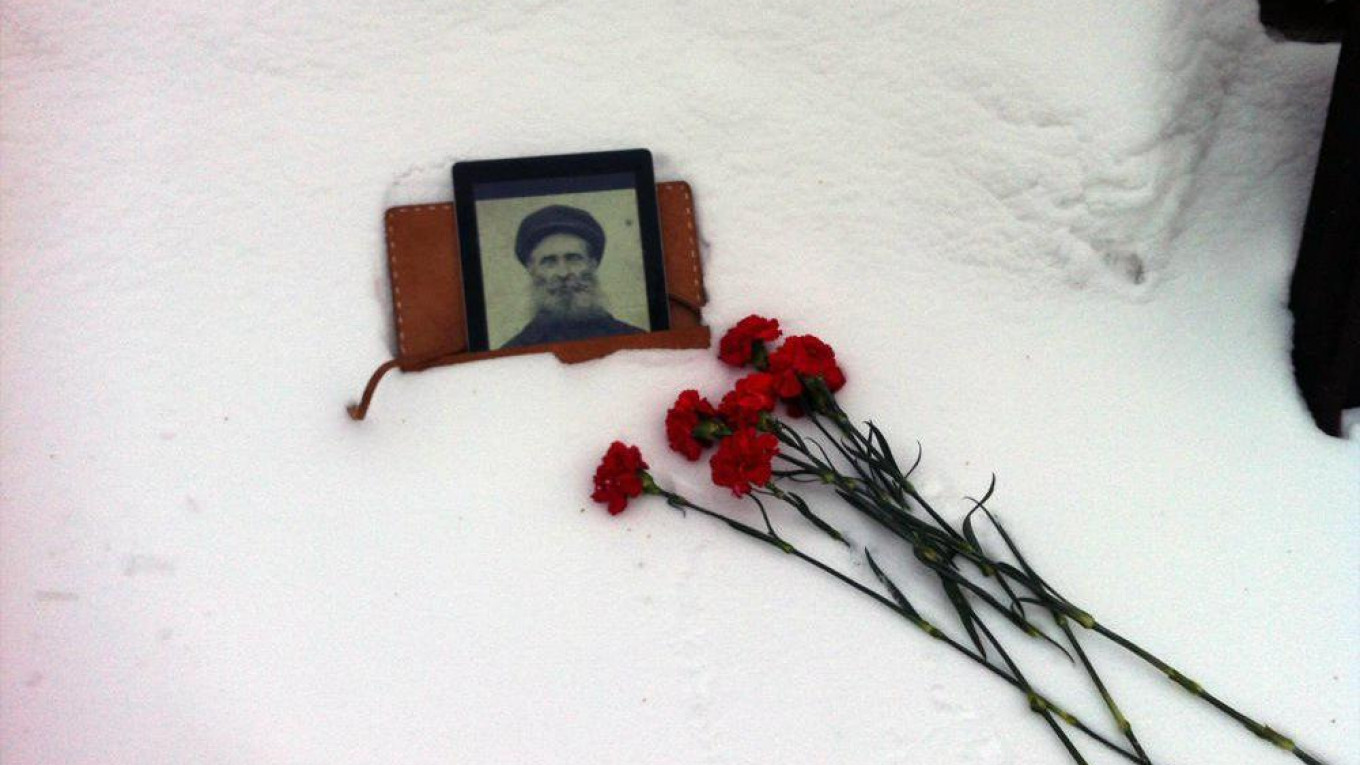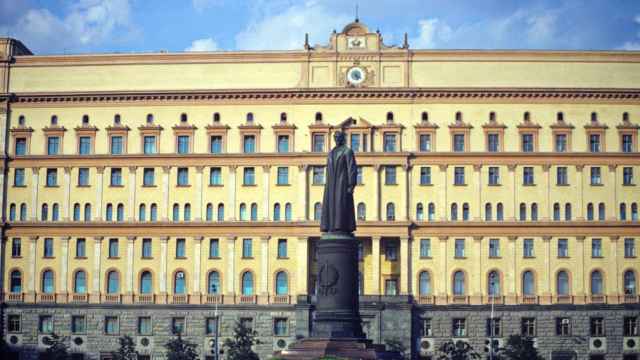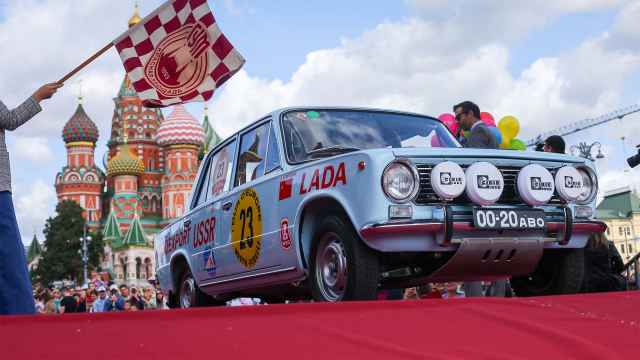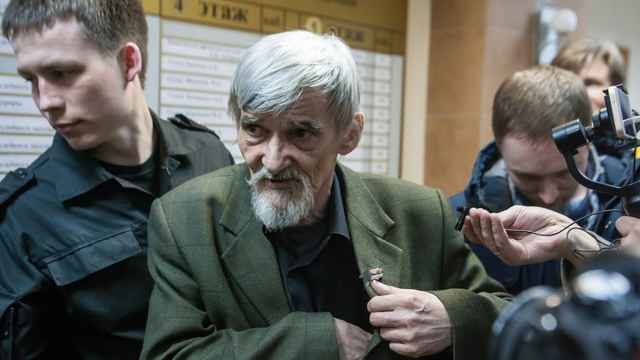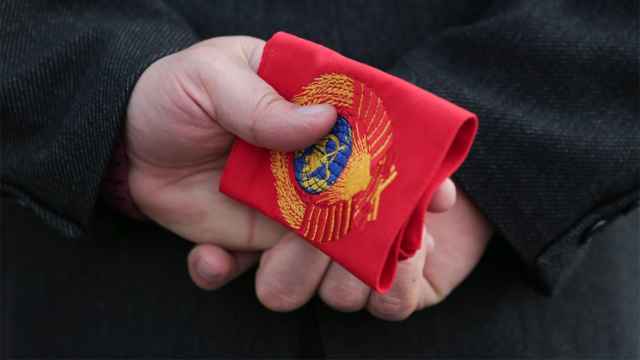A 34-year-old Tomsk resident says he’s tracked down the names of the men who helped kill his great-grandfather — a peasant who was executed in 1938 on charges of spying for the Japanese. According to a new report by Radio Liberty, Denis Karagodin managed to convince initially reluctant security-services archivists to show him documents that helped him reconstruct the chain of events that led to his relative’s execution almost 80 years ago.
Karagodin says he’s found the names of the people involved at every stage of his great-grandfather’s death, from the NKVD leadership in Moscow to the officers in Tomsk charged with enforcing the sentence, including even locals drivers and typists, and the actual gunmen who carried out the execution.
The key document in the investigation was an execution order by the Tomsk NKVD office against 36 different people, including Karagodin’s great-grandfather. “The historians and specialists I was able to reach couldn’t believe that I’d managed to get this document,” he told Radio Liberty. “Some were simply in shock that such documents still exist and that you can actually get them. It’s possible that I might be the first person in Russia’s history to be given such documents.”
Translation: “Help me decipher the NKVD staff signatures on the record of the firing-squad execution.”
Reconciliation, Not Repentance?
Late on Nov. 20, Karagodin says he got a letter from the granddaughter of one of the men who executed his great-grandfather, asking forgiveness. She apparently learned about who her grandfather was, thanks to Karagodin’s research, which he shares on his blog and on several social-media accounts.
“I haven’t slept for several days,” the letter said. “I’ve read over all the documents on your website. [...] I know I’m not to blame for what happened, but the feelings I’m having are beyond words.”
Karagodin says he wrote back to the woman, thanking her for her honesty, and offering a “hand of reconciliation.”
Translation: “We got as close as we could to the killers (literally): Stalin's grave and the resting place of other killers, Red Square, Moscow.
According to the website TJournal, Karagodin’s story has attracted significant attention on Facebook, where many Russians have welcomed the theme of reconciliation between “victims” and “executioners,” arguing that “repentance” is less practical, given the moral chaos that prevailed in the Soviet Union in the 1930s and 40s.
Shot on Jan. 21, 1938
Karagodin’s great-grandfather, Stepan, was arrested on Dec. 1, 1937, by members of the Tomsk NKVD — the predecessor to the KGB. He was charged with conducting espionage for the Empire of Japan, and sentenced to death by firing squad. The verdict was carried out on Jan. 21, 1938, and Stepan Karagodin’s relatives were told merely that he’d died while in police custody.
Translation: “A trench outside a church: construction on a memorial Russian Orthodox church at Kashtachnoi Hill, Tomsk's firing pit.”
According to Denis Karagodin’s website, his family never believed the charges against Stepan, and it spent decades trying to clear his name. Denis began his investigation in 2012, collecting information about NKVD employees at departmental and political archives. He says he also got help from the relatives of other people executed at the same time as his great-grandfather.
In June this year, Karagodin said he hopes to bring a criminal suit against the people responsible for his relative’s death, posthumously charging the individuals whose names he’s uncovered with conspiracy to commit murder.
A Message from The Moscow Times:
Dear readers,
We are facing unprecedented challenges. Russia's Prosecutor General's Office has designated The Moscow Times as an "undesirable" organization, criminalizing our work and putting our staff at risk of prosecution. This follows our earlier unjust labeling as a "foreign agent."
These actions are direct attempts to silence independent journalism in Russia. The authorities claim our work "discredits the decisions of the Russian leadership." We see things differently: we strive to provide accurate, unbiased reporting on Russia.
We, the journalists of The Moscow Times, refuse to be silenced. But to continue our work, we need your help.
Your support, no matter how small, makes a world of difference. If you can, please support us monthly starting from just $2. It's quick to set up, and every contribution makes a significant impact.
By supporting The Moscow Times, you're defending open, independent journalism in the face of repression. Thank you for standing with us.
Remind me later.


